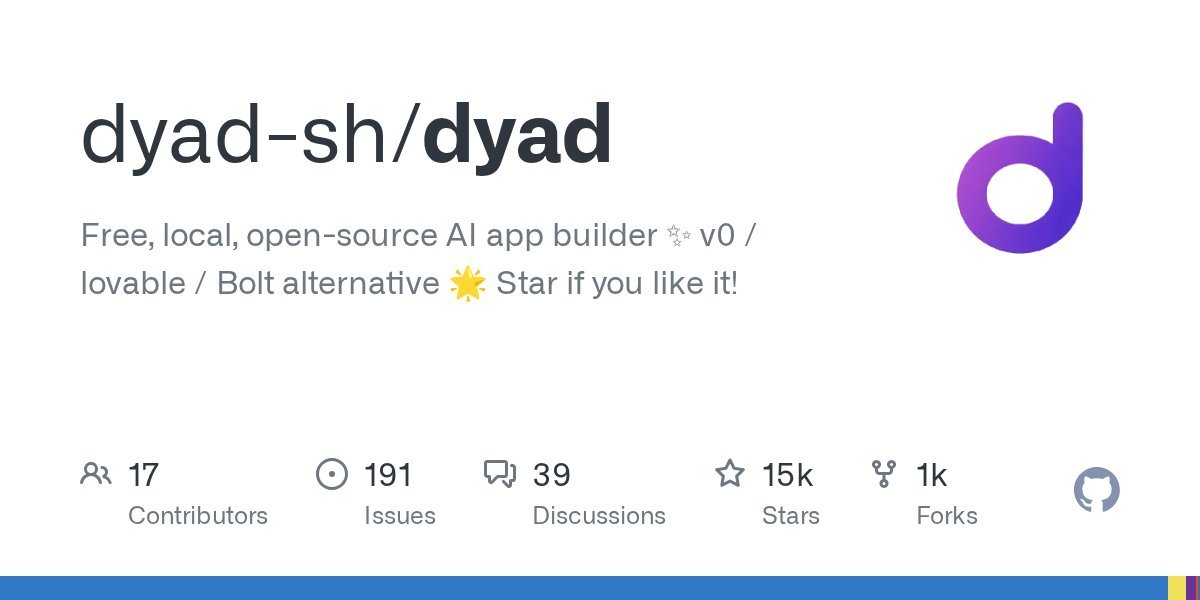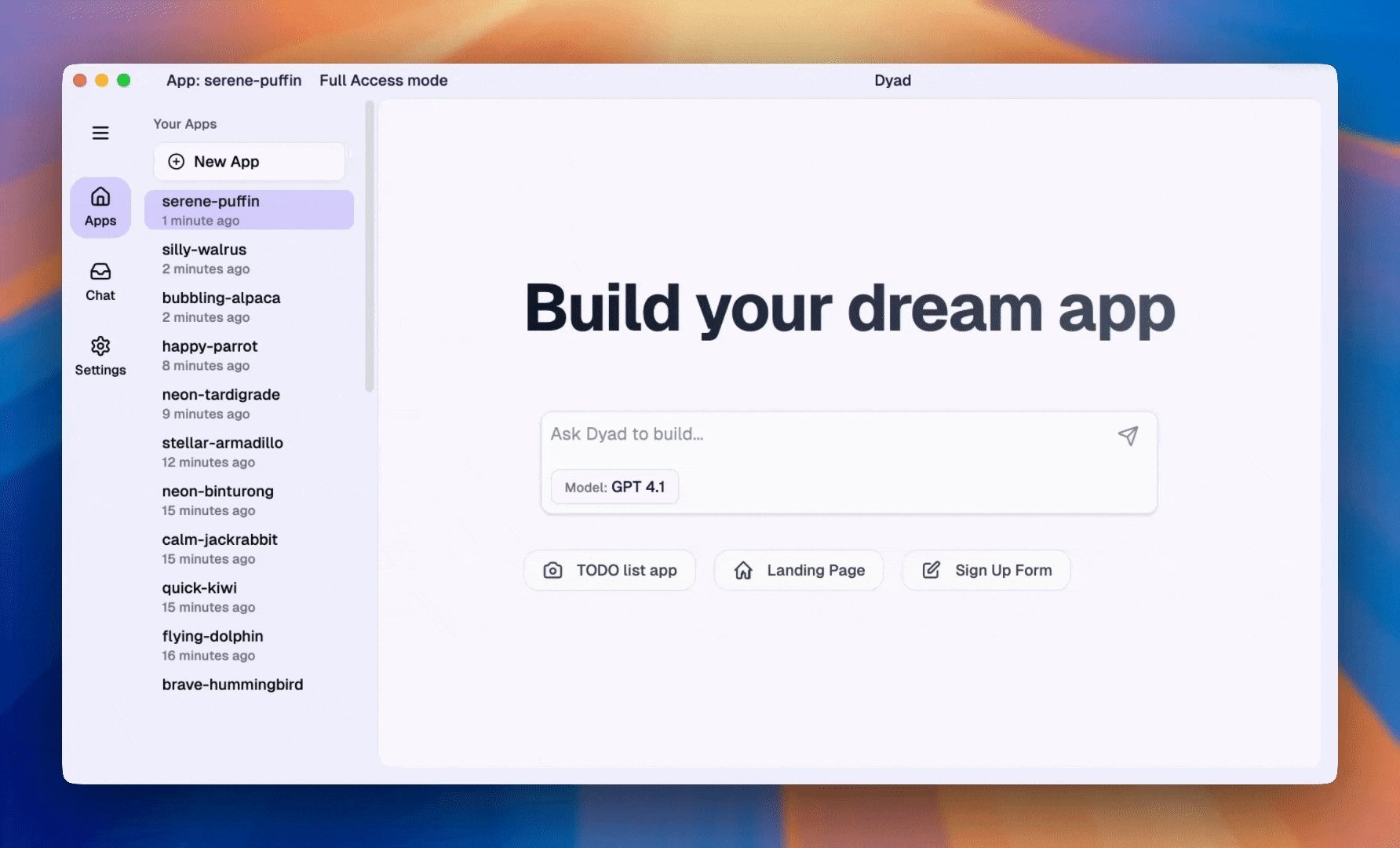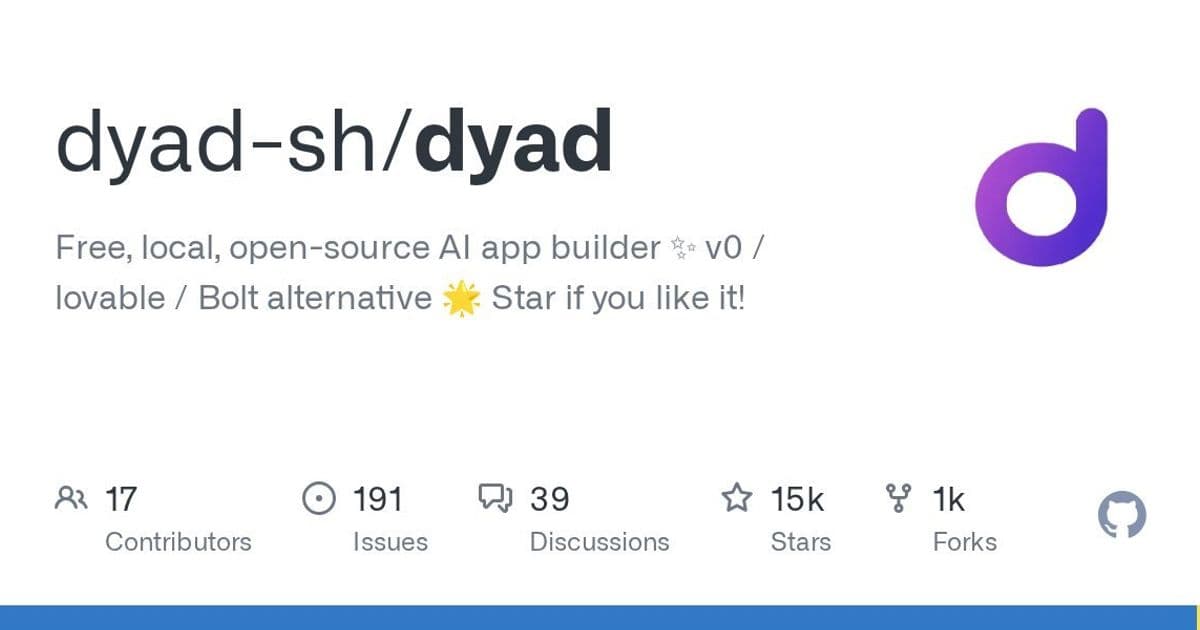Dyad enters the AI builder space with a compelling proposition: a fully local, open-source platform that runs directly on your machine. By eliminating cloud dependencies and vendor lock-in while supporting custom API keys, it offers developers unprecedented control over their AI application stack.

The race to democratize AI development just gained a noteworthy contender. Dyad, a newly launched open-source project, is positioning itself as a privacy-first alternative to cloud-based AI app builders like v0 and Lovable. Unlike its competitors, Dyad operates entirely on local hardware—offering developers speed, data sovereignty, and freedom from vendor constraints.
Why Local AI Builders Matter
As organizations grapple with data privacy regulations and intellectual property concerns, local execution becomes strategic. Dyad runs directly on Mac or Windows machines, ensuring sensitive prompts, proprietary code, and training data never leave the developer's environment. This addresses critical pain points in industries like healthcare, finance, and legal tech where cloud-based AI tools pose compliance risks.
Core Advantages Driving Adoption
- Zero Vendor Lock-in: Dyad doesn’t force proprietary APIs. Instead, developers bring their own keys (OpenAI, Anthropic, etc.), maintaining flexibility and cost control.
- Offline-First Design:
 Operations execute locally without internet dependency—ideal for low-connectivity environments or air-gapped systems.
Operations execute locally without internet dependency—ideal for low-connectivity environments or air-gapped systems. - Apache 2.0 Licensed: The permissive license enables commercial use and integration into private workflows without royalties.
The Architecture Trade-Off
While local execution enhances privacy, it shifts computational load to user hardware. Dyad’s efficiency claims will face scrutiny as app complexity grows—especially for resource-intensive tasks like RAG implementations or fine-tuning. Early adopters report smooth performance for prototyping, but enterprise-scale deployments may require optimization.
Getting Started and Community
Dyad requires no sign-ups or subscriptions. Developers download the binary and immediately start building with:
# Example launch command
dyad init my-ai-project --model=gpt-4o
An active subreddit (r/dyadbuilders) fosters knowledge sharing, with contributors already extending its plugin ecosystem. For those wanting to dive deeper, the GitHub repository welcomes PRs and issue tracking.
The Bigger Picture
Dyad signals a growing demand for sovereign AI development—tools that prioritize user control over convenience. As regulatory scrutiny of cloud AI intensifies, solutions like this could reshape how teams prototype and deploy generative applications. It won’t replace cloud platforms for all use cases, but for developers prioritizing privacy, transparency, and ownership, Dyad offers a compelling on-ramp.
Source: Dyad GitHub Repository

Comments
Please log in or register to join the discussion